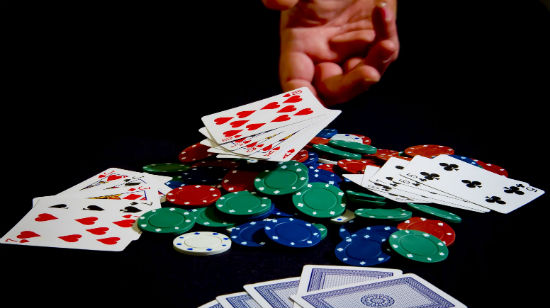Also called 21, blackjack is one of the most played casino banking games where a player wagers against the house. In blackjack rules, the value of cards dealt to the player are compared against that of the dealer. The position with the highest value will win. However, the hand should not exceed 21. If it does, it will bust and lose to the other position.
Card decks and values
Typically, the game is played with French decks containing 52 cards each. The number of decks used in a game will depend on the rules of the casino. Generally, one deck is the minimum and eight is the maximum. The value of number cards from 2 to 9 remain the same. Face cards - Kings, Jacks and Queens - are valued at 10. Aces can be either 1 or 11 based on how close a hand is to 21. For example, if it has a total of 20, and gets an ace, the card value will be 1. On the other hand, if the hand total is 9 and it lands an ace, the card will be 11.
Game-play
At a blackjack table, there may be 5 to 7 players, however, you will not play against them. Your hand will be compared only against that of the dealer. Once all players take positions, the betting round will begin. Maximum three players can place wagers in a betting box. The player who places a bet at the front of the box will be in control of the playing decisions at a table.
Each player is dealt a hand comprising two cards face-up. The dealer will get one card face-up, and another face-down, if it is a hole card game. The dealer can look at his hand. However, he will not reveal the cards’ value unless he has a blackjack. In no-hole card games, the dealer does not draw or look at the second card until players have played.
Players can take one of two decisions – to receive more cards for a hand of 21 or not. Most casinos have a rule that the player should stay if he has a hand of 17 or more. Hands less than that, and the dealer will have to draw.
In case you land a 21 with the first two cards, you will have a natural blackjack. You will most likely be paid 1 1/2 times your bet amount. However, if both you and the dealer get it, it will be a tie. In that case, the house generally pays the player back.
Betting decisions
Players can take other betting decisions like splitting, even money and doubling down.
Split
- a two card hand is split so each card acts as the start to another hand. A new bet equal to the initial wager should be placed. Splitting is permitted only when both cards are of same value.
Even money
- if you get a natural blackjack and the dealer’s face-up card is an ace, you can cash in your wager for a 1:1 payout.
Double down
- after being dealt the first hand, if you double your wager, you will be doubling down. You will be allowed to hit just one card. A few casinos allow players to double down only after they split. Another rule is that players can double down if the hand value is ten or eleven.





















